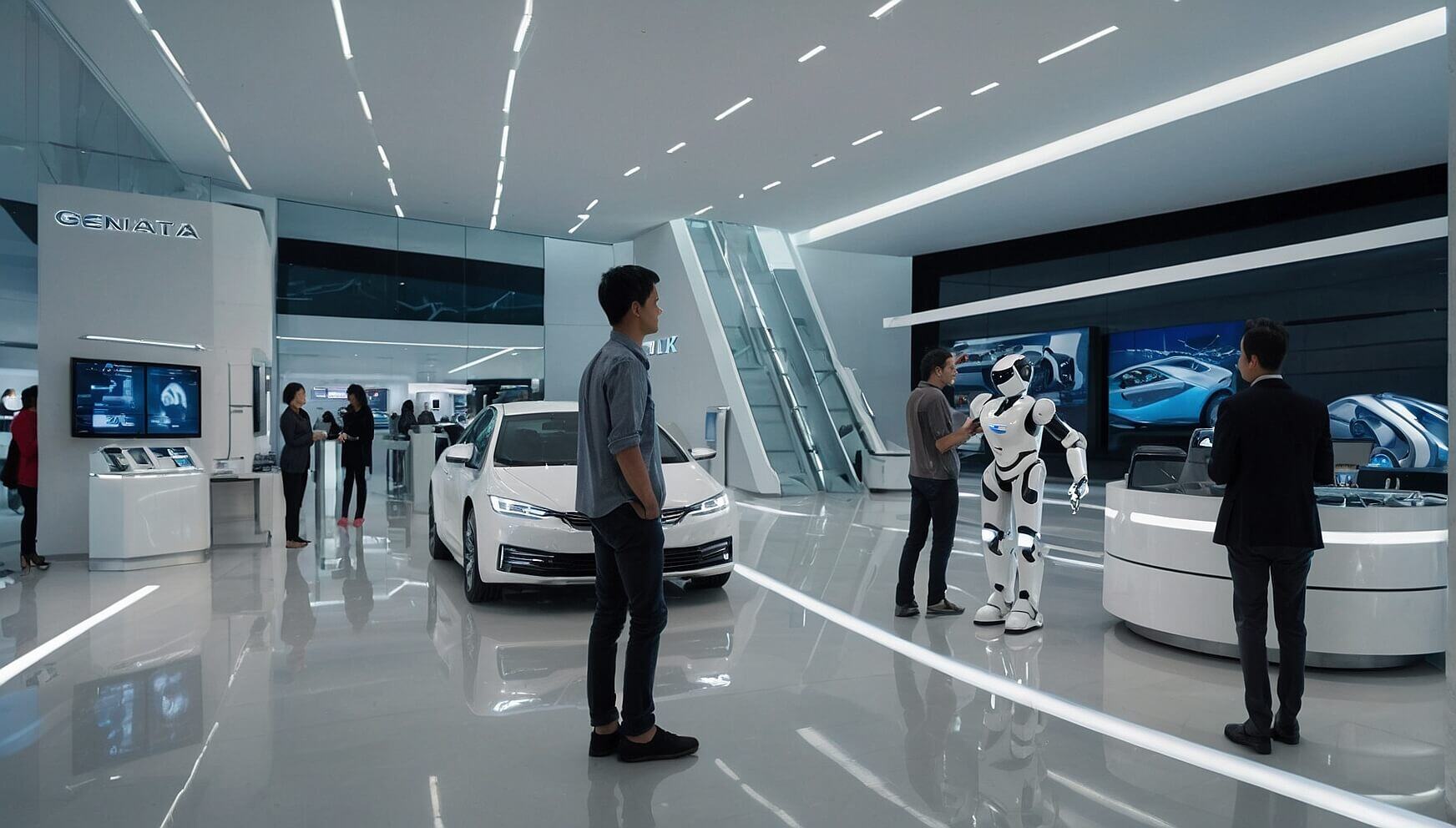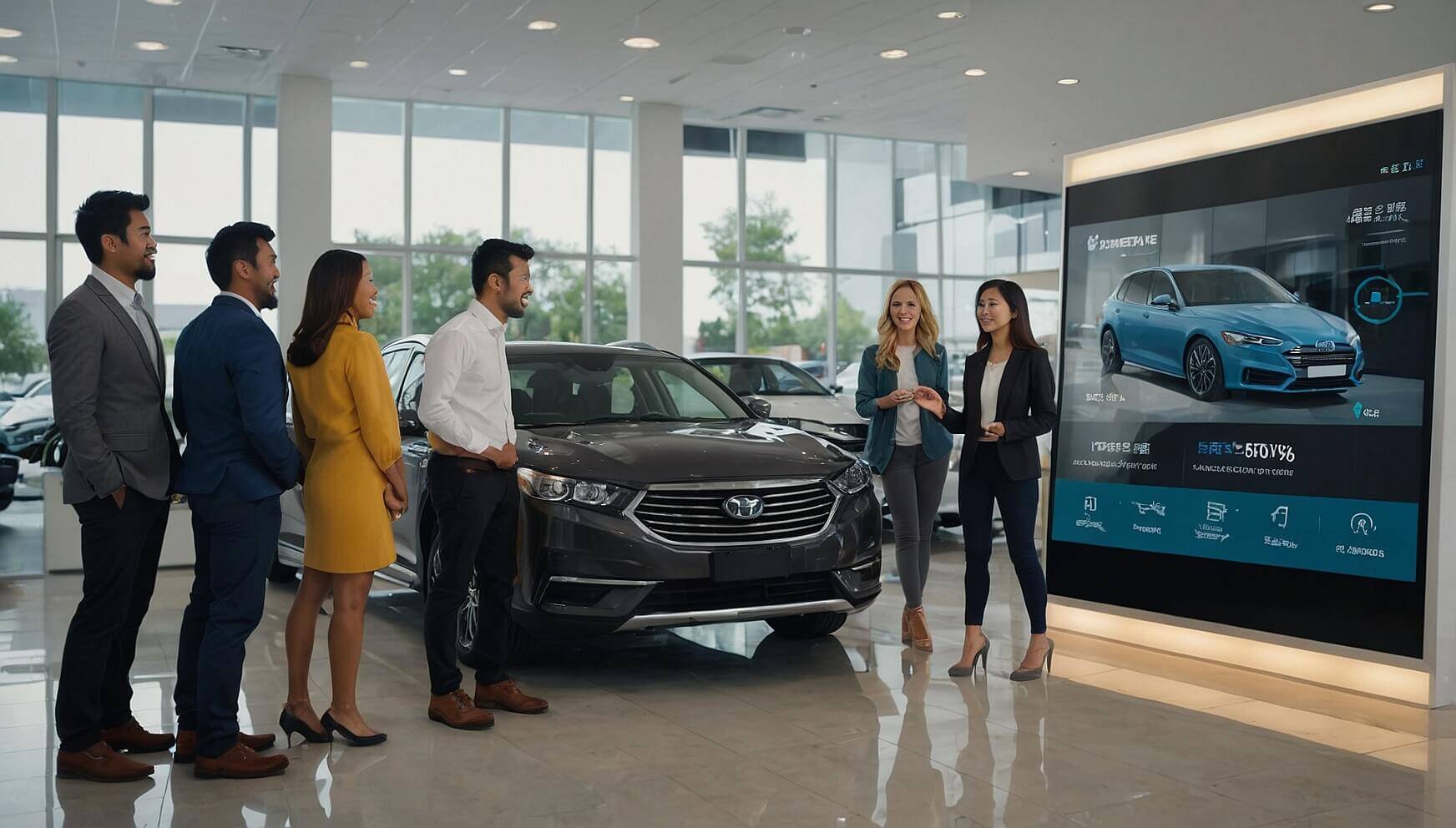In 2024, the automotive retail sector is undergoing significant transformation, driven by advancements in artificial intelligence (AI) and other digital technologies. Dealerships are increasingly leveraging these tools to enhance customer experiences and operational efficiencies, aiming to not just attract, but also retain customers in a competitive market.
Innovations in Digital Signage and Smart Messaging
Digital signage is revolutionizing the way messages are delivered within dealerships. Approximately 72% of businesses believe that digital signage creates more brand awareness, and smart screens are central to this strategy. These displays can now utilize real-time data such as inventory levels and customer preferences to tailor messages. For example, if a dealership's SUV inventory is low, the screens can automatically switch to promoting available sedans, thereby optimizing stock turnover. Additionally, personalization through digital signage can lead to a 32% upswing in sales effectiveness.
Enhancing Customer Interaction with AI
AI is transforming customer interaction in showrooms. With staff often outnumbered by customers, especially during peak times, interactive displays and AI-powered chatbots are stepping in to bridge the gap. These tools are adept at understanding customer needs and can guide them through the initial stages of vehicle selection and financing before human assistance is required. It's estimated that AI can reduce customer wait times by up to 30%, improving satisfaction and potentially increasing sales closure rates by 18%.

Multilingual Capabilities and Voice Interaction
AI's ability to converse in multiple languages is eliminating language barriers in auto retailing. Voice-driven interactions, rather than touchscreens, cater to a broader demographic, including non-native speakers. For instance, a dealership might use AI to communicate with customers in Mandarin, enhancing their comfort and engagement. This technology not only enhances customer service but is also expected to expand market reach by 15% through inclusivity.
Targeted and Controlled Content in Waiting Areas
The control over content displayed in dealership waiting areas has seen a significant shift. Dealers can now curate content that aligns with brand values and avoids displaying competitors’ advertisements. This shift is crucial in maintaining brand integrity and customer focus while in-store. Implementing controlled content has shown to reduce customer irritation by 40% and increase interest in promoted deals by 25%.
Integration of LED Displays into Architecture
Advancements in display technology are also transforming dealership aesthetics. Modular LED displays are being integrated into the architecture, turning walls and windows into interactive marketing tools. This integration not only enhances the visual appeal but also serves as a dynamic advertising platform. Dealerships utilizing integrated display technologies have reported a 20% increase in foot traffic and a notable improvement in customer engagement metrics.
Data Integration and Real-time Analytics
The seamless integration of various business systems allows for a more sophisticated approach to managing dealership operations. Real-time analytics enable dynamic pricing and inventory management directly influenced by current market data. Dealerships that have adopted integrated systems report a 10-15% improvement in operational efficiency and a significant reduction in inventory stagnation.

Traffic Flow and Consumer Behavior Analytics
Advanced analytics and machine learning are also employed to study traffic flow and consumer behavior within dealerships. This data helps optimize staff allocation and marketing strategies based on actual customer engagement patterns. Analysis shows that such optimizations can lead to a 25% increase in customer retention and a 30% improvement in sales conversion rates during peak hours.
Technological Evolution in Auto Retailing
The introduction of electric vehicle brands and their innovative retail models is prompting a broader shift in the auto retail industry. Established brands are taking cues from these newcomers, integrating more technology into their operations to stay competitive. The continued adoption of AI and related technologies is expected to drive a 35% increase in dealership efficiency over the next five years, reshaping the automotive retail landscape.
In conclusion,
AI and emerging technologies are not merely enhancing existing practices in automotive retailing; they are setting new standards for customer interaction, operational efficiency, and overall dealership success.
Ready to drive your dealership forward with AI?
Frequently Asked Questions
How is digital signage being personalized in car dealerships?
Dealerships now feed screens with real-time data (like inventory levels or customer profiles) to tailor messages on the fly. For example, if the SUV stock is low, the display may automatically switch to highlighting sedans. This kind of AI-driven personalization can boost sales effectiveness by around 32%. Also, about 72% of businesses report that dynamic displays increase brand awareness, so smarter content keeps customers engaged and informed.
What AI tools are improving customer interactions in showrooms?
Interactive displays and chatbots are key. When staff are busy, AI-driven kiosks can ask customers questions and guide them through vehicle selection and finance options. This reduces wait times by roughly 30% and often leads to an 18% higher sales closure rate. Essentially, customers get immediate, personalized assistance even during peak hours, freeing up sales reps for closing deals.
How are multilingual and voice AI features used at dealerships?
AI can speak multiple languages and recognize voice commands, which breaks down communication barriers. For instance, a Mandarin-speaking customer could interact with a display or kiosk in their language. This inclusivity not only improves customer comfort but can extend market reach by ~15%, as dealerships can now serve more diverse customer groups.
How do dealerships use digital displays strategically?
Many are integrating large LED or video walls into their architecture. These immersive displays act as dynamic billboards. For example, some dealers incorporate LED panels as part of the walls or windows to showcase vehicles and promotions. Dealerships using such integrated displays have seen foot traffic rise by about 20%. They also curate in-lobby content carefully (no competitor ads) to reduce customer irritation (by ~40%) and increase interest in their own deals by 25%.
What operational efficiencies does AI and analytics bring to automotive retail?
With integrated data systems, dealers can do dynamic pricing, inventory management, and staffing more intelligently. Real-time analytics tied to signage mean cars and deals can be promoted based on market conditions. Those who adopt these systems report 10-15% better overall efficiency. Additionally, by analyzing store traffic and behavior, they've achieved up to a 25% boost in customer retention and a 30% jump in sales conversions during peak times.